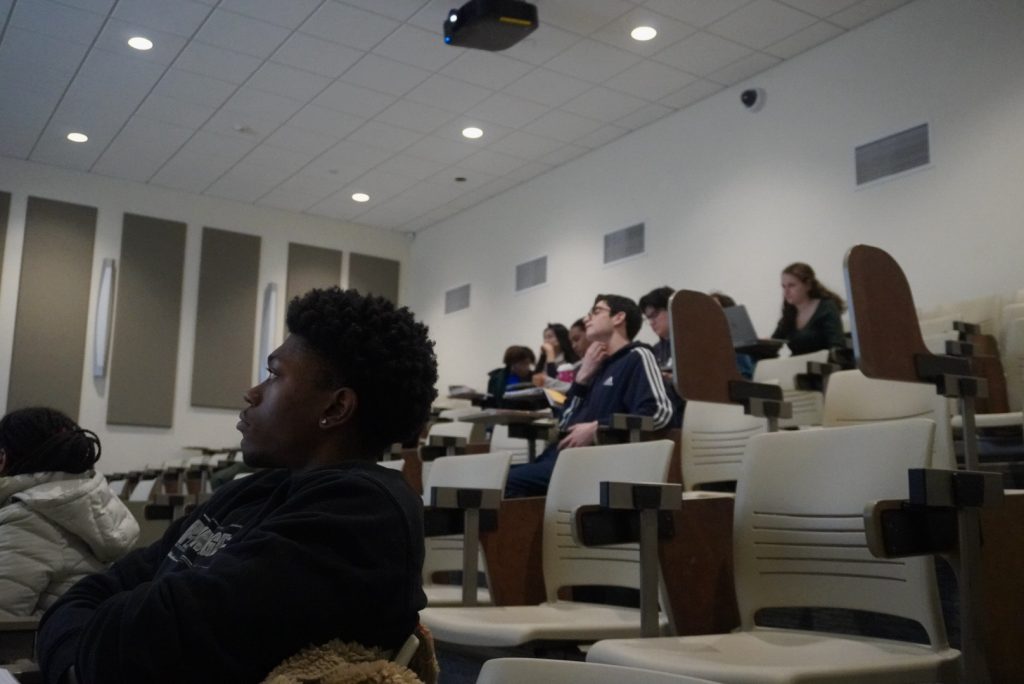The Latin American and Caribbean Area Studies program hosted a screening of the film “Boca Chica” for their Afro-Latin American Film Festival on Wednesday, Feb. 12. The film was preluded by a video from the director, Gabriella Moses. This was introduced by brief speeches from Cheri Robinson, a lecturer of Spanish, and Giovanna Montenegro, the director of LACAS and an associate professor of comparative literature and romance languages.
In Montenegro’s speech, she described the importance of the film and expressed her gratitude for Moses’ message. Moses opened her video by thanking the audience at Binghamton University and in the rest of her introduction, she encouraged viewers to connect the issues of the film to their environment because the issues depicted are not isolated to the Dominican Republic. She went on to express that she hoped this connection would get viewers to think of ways we could help young, vulnerable women within our communities, stressing that we pay attention to the clothing within this film, both as an indicator of culture and age.
The film itself follows Desi, played by Scarlet Camilo, a young Dominican girl who is continuously confronted with bitter truths about how women and young girls are treated within her community. Desi lives in the Dominican Republic with her mother Carmen, played by Lia Chapman, and her aunt. Both her brother Fran, played by Jean Cruz, and her cousin Elvis, played by Richard Díaz, live in the United States.
This distance between the family is very important to the themes of the film as although Desi craves a relationship with her brother by trying to relate to his musical talent, and looks up to Elvis as someone who has made it out of the poverty they grew up in, not everything is as it seems.
Desi soon learns that much of what she knows about her family is untrue, and they’re all too scared to confront the truth. This is a very powerful message, as by the end of the film, Desi has no one to turn to besides her brother. In the process of learning the truth and growing into a stronger person, her innocence is destroyed, and she is forced to rebuild. This still provides a happy ending, however, because the film really makes you feel like Desi will be ok and that wherever she goes next, she’ll be safer.
Among the supporting cast, Chapman gives the standout performance. Her depiction of Desi’s mother is at times warm. It feels like a truly honest depiction of a woman stuck in a cycle of abuse who doesn’t believe she is strong enough to change her circumstances. It is tragic to watch her push Desi away because it is obvious that the two love each other, but Carmen just isn’t willing to change for her daughter.
The final shot of the film is perhaps its most poignant image. In it, Desi watches two girls, wearing the same dresses that sex workers wear throughout the film, play on a swing set. This is incredibly unsettling because it is likely that these girls are around the same age as Desi, and even though they’ve been forced into sex trafficking, they still have childish desires that they are only allowed to indulge in briefly.
When asked after the screening, Robinson and Montenegro said they chose to show this film in particular for multiple reasons. One was the fact that it took place within the Dominican Republic, and they wanted to showcase different films that cover different regions for the Afro-Latin American Film Festival. Another was that this film showcases how a young girl finds her voice, something that they stressed was very important in our current time.
Their goal for the festival as a whole was to showcase the diversity of Afro-Latin American voices within the film industry and to give a global, specifically Latin American, perspective on Black history. They concluded by stating that this festival was put together by multiple different organizations, and by supporting it, we would be able to support multiple different programs here.



